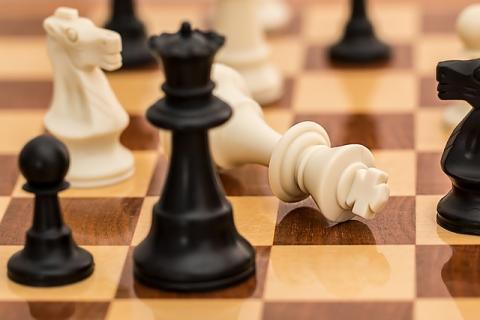
Chess makes you smarter… It’s an age old cliché we’ve heard from our parents and teachers that actually turns out to be true. Here are five ways the game of pawns, rooks and knights improves your brain.
5) Strengthens Cognitive Reasoning: Several studies have shown that people actively involved in the game of chess are more likely to recognize patterns and shapes, and build the cognitive thinking skills associated with the left side of the brain.
4) Improves IQ: Chess can improve one’s IQ by sharpening recognition and reactivity to various objects and situations/scenarios. Chess players are able to process information such as pattern recognition on both sides of the brain, rather than only the left . Chess players are often the proud owners of vast collections of knowledge and high standardized test scores.
3) Sharpens Mental Acuity: Chess is known to strengthen cause and effect patterns in the brains of both young and old, leading to higher awareness and attention spans. For children suffering from A.D.D. or A.D.H.D., chess could potentially serve as a safer (and less costly) alternative to prescription drugs like Ritalin and methylphenidates, while older generations can keep problems like memory loss and dementia at bay.
2) Heightens Emotional Intelligence: Chess players have to be able to read their opponents. Otherwise, they can’t anticipate upcoming moves, much less win matches. Chess teaches players to read people, making them more perceptive to feelings and emotional understanding.
1) Improves Vocabulary and Verbal Skills: A study conducted in Zaire in the early 1970s establishes that chess can improve one’s verbal skills. How does this happen? Considering players typically stay silent during games, the study concluded that a number of aptitudes in the mind are regularly tested and engaged during past-times as analytical as chess. One of these aptitudes includes the power of speech. Who knew that staying quiet during chess could actually help you speak better?
